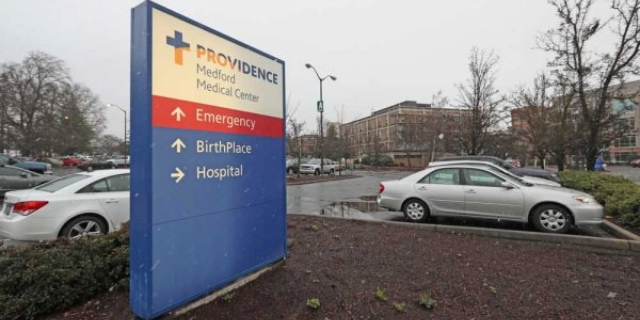Lower prescription costs, easier cellphone repair: Oregon laws take effect Jan. 1
Published 1:00 pm Tuesday, December 24, 2024

- School bus stop sign 1
When a school bus stops to drop off children and flashes warning lights or deploys its stop arm, drivers approaching the bus from behind always have to stop.
Trending
That’s the law in all 50 states. And yet, driver surveys from a national bus driver organization find that thousands of drivers fail to do so each day.
Come Jan. 1, Oregon school districts will be allowed to equip their buses with cameras to catch and report drivers who fail to stop.
The new law was informed by Sean Sype, a Wilsonville High School student who told lawmakers he’d seen bad drivers speed around buses, endangering his classmates. Cameras could deter that behavior, Sype argued, and hold bad drivers accountable.
Trending
“This bill is ultimately about keeping kids in our communities safer,” Sype wrote to lawmakers last year.
Sype’s bill is one of many new laws taking effect in Oregon on the first of the year. Others include efforts to clamp down on drug use on public transit, make prescription drugs more affordable and ensure that Oregonians have the tools and information they need to fix electronic devices, if they’d rather do that than buy new ones.
“Oregonians aren’t satisfied with the status quo, and neither are we,” Senate Majority Leader Kayse Jama, a Portland Democrat, said in a news release sent by Democrats in both chambers Monday. “These changes in the new year mark just one phase in our mission to improve quality of life in Oregon.”
Right to repair
On Jan. 1, Oregon will become just the fourth state to require tech manufacturers to give consumers and independent repair shops access to the tools, parts and manuals required to repair their gadgets. The rule applies to consumer electronic devices sold on or after that day.
The so-called “right-to-repair” bill drew pushback from tech industry giants including Apple, who argued that Oregon’s expansive law could compromise device safety and security.
The bill says that companies can’t limit the performance of a device just because a consumer or an independent repair person used an aftermarket product to repair it. They also can’t make those devices display misleading alerts or warnings about unidentified parts.
Coal divestiture
Another 2024 law that will go into effect at New Years will require the Oregon Treasury to divest from coal companies and funds that include coal companies, unless those companies are making the move to clean energy. Those divestments can’t hurt the value of the investment funds, however.
“Oregonians, particularly Oregon public employees and retirees, are clear: They don’t want their dollars invested in polluting our air, water and land,” Sen. Jeff Golden, a bill sponsor and Ashland Democrat, said in a March press release about the legislation.
Oregon’s treasurer and soon-to-be Secretary of State Tobias Read released a plan earlier this year to move the state’s investment portfolios into companies that reach net-zero emissions by 2050.
Drug use on transit
People who use illegal drugs on public transit will be subject to the class A misdemeanor of interfering with public transportation, come January. That’s a far heavier consequence than the class C misdemeanor charge for using drugs in other public spaces.
Punishment for breaking the new law could be up to a year in jail, a fine of more than $6,000 or both, though people convicted could in many cases access state-funded treatment.
Changes in prescription drug laws
Come January, insurers and health care companies will have to count the full amount that patients pay for prescription drugs toward meeting their maximum out-of-pocket payment. The bill is intended to help people with expensive prescriptions reach those maximum payments more quickly, bringing down their overall costs, the Democrats wrote.
Another law prevents health benefit plans from requiring physician-administered drugs to be created at special pharmacies. Insurers in recent years have tried to reduce costs by requiring some drugs be purchased by a specialty pharmacy, Democrats say, a practice that has sparked concern from doctors who say that can cause delays for patients trying to get their medicine.
School board recordings must be made public
Unless a school district has fewer than 50 students, its school board must record video of its public meetings and post those online for people to view. Same goes for the boards of community colleges and public universities. A district that has bad internet access is allowed to upload an audio recording instead.
Worker safety
Another bill requires warehouse workers to tell employees in a transparent way about any quotas they have to meet. That has to be given to workers in writing, and employers can’t discipline warehouse workers for failing to meet quotas they haven’t described.
Advocates for warehouse workers say that quotas contribute to high workplace injury rates, House Democrats wrote, and lawmakers hope the bill will give workers the information they need to do their work safely and advocate for themselves.








